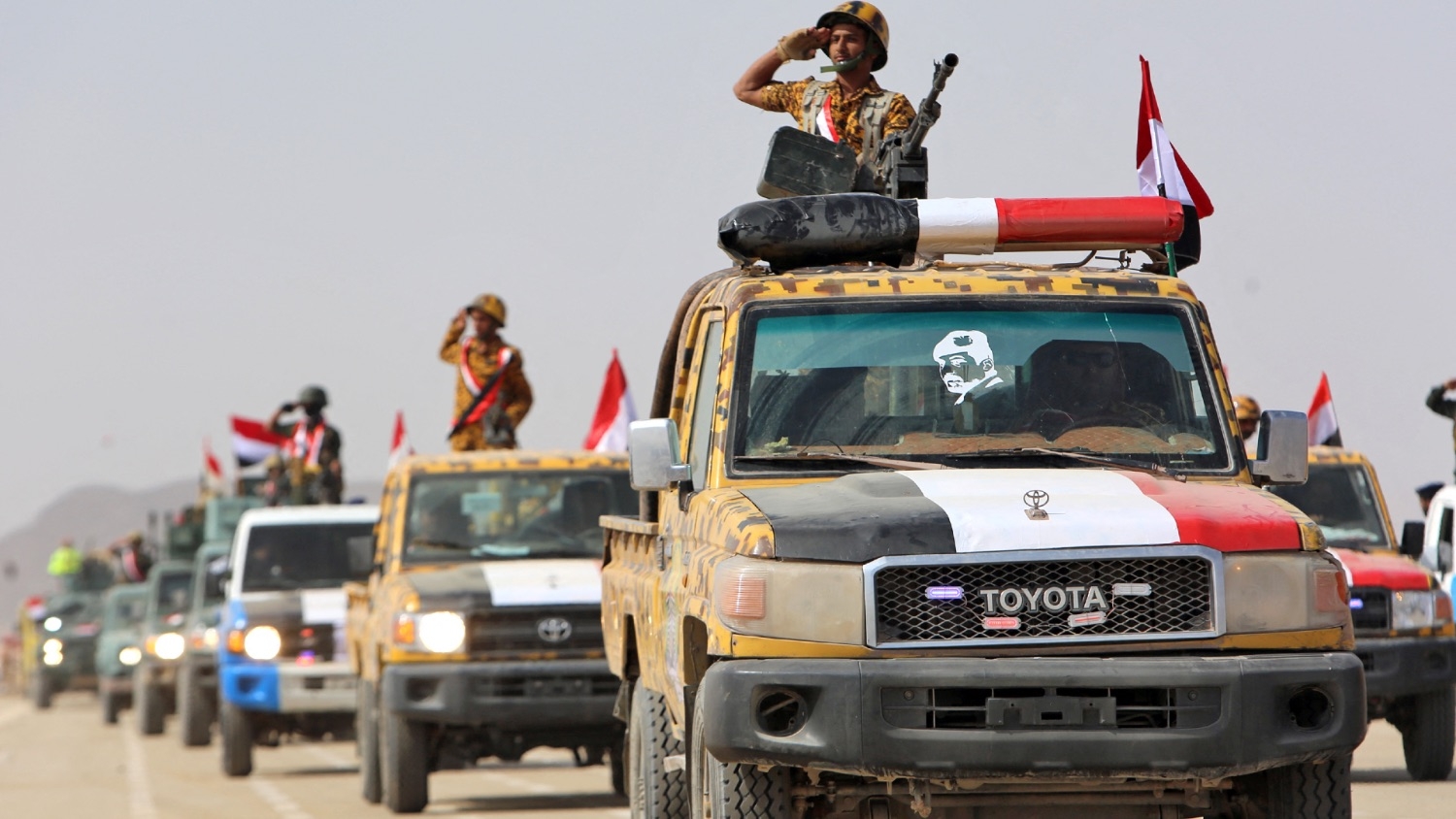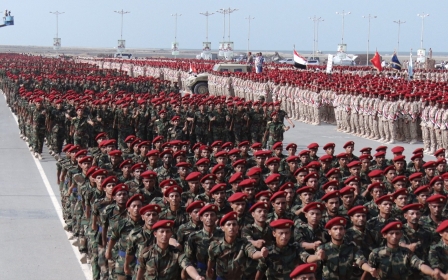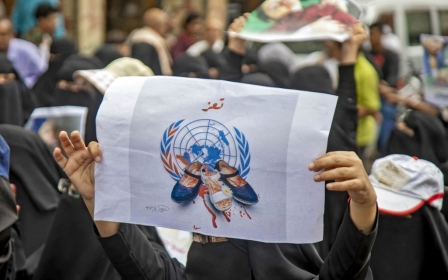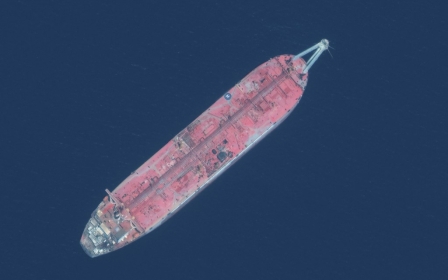Biden urged to press Saudi coalition to end Yemen blockade

A group of 38 members of US Congress has sent a letter to the Biden administration, urging Washington to press Saudi Arabia and its allies to lift a blockade on Yemen, as the negotiated truce expired and led to fears of a return to fighting in the years-long conflict.
The letter, led by Congresswoman Debbie Dingell and Congressman Mark Pocan, was sent on 30 September, several days before the United Nations-backed ceasefire expired without an extension.
The UN special envoy for Yemen, Hans Grundberg, said efforts to extend and expand the ceasefire for a further six months had not been successful ahead of Sunday's deadline.
The congressional letter stated that "progress towards an expanded truce agreement is increasingly urgent", however, its ultimate focus was on ending the blockade imposed by US ally Saudi Arabia.
"We respectfully request that you use US leverage and relationships with Saudi Arabia, the UAE, and Yemen's PLC to fully lift the blockade," the lawmakers wrote, adding they wanted the US to help "maintain unity that will best support efforts towards an expanded truce, and ultimately, the end to the Saudi-led war in Yemen".
Yemen descended into civil war in 2014, when Houthi rebels seized the capital, Sanaa, forcing the internationally recognised government to flee to Saudi Arabia. Riyadh and a coalition of regional allies, chiefly the UAE, intervened in March 2015 to push the Houthis back.
Seven years of fighting has failed to dislodge the Iran-aligned Houthis, who control northern Yemen and about 80 percent of the country’s population, along with major urban centres.
The April truce came after one of the most intense periods of fighting in the conflict, as the Houthis attempted to take the strategic city of Marib. Forces loyal to the Saudi-led coalition held them off and reorganised its forces to go on the offensive in Shabwah, where it dealt the Houthis a rare defeat.
After being renewed twice, the deal expired on Sunday as the warring parties could not agree to the terms of an expanded ceasefire.
US Special Envoy for Yemen Tim Lenderking on Wednesday called on the Houthi group to show more flexibility over the UN-proposed truce, saying the group had "imposed maximalist and impossible demands" over a proposed mechanism to pay public sector wages.
Blockade could amount to torture
Since entering the conflict in 2015, Saudi Arabia and its allies have imposed a blockade on Yemen, blocking ships and planes from entering and leaving the country.
Several reports, including from the World Bank, have stated that the blockade has contributed to rising food prices and hampered access to clean drinking water, humanitarian aid, and life-saving medical services.
The truce had helped alleviate some of the impacts of the blockade, with the Saudi-led coalition allowing the entry of nearly one million metric tonnes of fuel in the first four and a half months, according to Grundberg.
'The Saudi imposed blockade is the main contributor to the spread of starvation and diseases and is considered a war crime'
- Aisha Jumaan, Yemen Relief and Reconstruction Foundation
The truce also permitted the use of Sanaa International Airport for commercial flights for the first time since 2016. The UN said 41 flights and more than 20,000 Yemenis had been able to fly in and out of the nation's capital, which is currently held by the Houthis.
But the members of Congress said efforts had fallen short of a full lifting of the blockade, and with the ceasefire having expired, any progress was in danger of being reversed.
"These early steps to mitigate the worst excesses of the Saudi-led coalition's blockade remain woefully inadequate in the face of the world's worst humanitarian crisis," the lawmakers said in their letter.
A report published last month by the World Organisation Against Torture also found the blockade imposed by the Saudi-led coalition "can be considered torture" for the humanitarian toll it has had on Yemen.
"The Saudi imposed blockade is the main contributor to the spread of starvation and diseases and is considered a war crime. The Yemeni people should not be held hostage to peace negotiations or the truce. The blockade should be lifted unconditionally," Aisha Jumaan, president of the Yemen Relief and Reconstruction Foundation, said in a statement sent to MEE.
Invoking war powers resolution
Congress has introduced several pieces of legislation aimed at ending US support for the Saudi-led coalition's war in Yemen.
The most recent came in June when a bipartisan coalition of lawmakers introduced a new Yemen War Powers Resolution, which would bring an end to all remaining support for the war and strengthen US President Joe Biden's pledge last year to end assistance.
The resolution, introduced in the House and accompanied by a companion bill in the Senate, would end US military participation in offensive air strikes by the Saudi-led coalition, including ending intelligence-sharing and logistical support such as maintenance and provision of spare parts.
The bills are currently sitting in both the House and Senate, awaiting a vote.
Weeks after entering office in 2021, Biden announced Washington would end support for offensive operations in the Saudi-led war in Yemen, marking a major foreign policy shift from the Trump administration.
The announcement was initially received in a positive light by progressives and peace advocates. However, questions soon emerged as to what "offensive support" constituted, and what would happen to key aspects of the coalition's air strike operations such as aircraft maintenance, which the US provided.
Democratic lawmakers DeFazio and Ro Khanna, who signed the 30 September letter, criticised the administration's vague language in an interview with MEE in January.
In their letter to the administration, the lawmakers told Biden to convey a threat to the Saudi-led coalition, saying they would "not hesitate" to end "US participation in any renewed airstrikes or other military action inside of Yemen".
"This important letter shows that Members of Congress are rightly standing firm against the use of collective punishment of tens of millions of Yemenis as a bargaining chip in negotiations," Erik Sperling, executive director of the advocacy group Just Foreign Policy, said in a statement sent to MEE.
"If the administration green-lights renewed Saudi bombing, Congress will act swiftly to cut that support through a bipartisan, bicameral War Powers Resolution."
Middle East Eye delivers independent and unrivalled coverage and analysis of the Middle East, North Africa and beyond. To learn more about republishing this content and the associated fees, please fill out this form. More about MEE can be found here.





